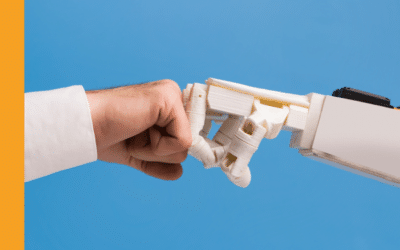We live to learn, just as we learn to live.
Learning is a process without end, a journey without conclusion. We learn through the way we live our lives, the way we work, the people we surround ourselves and interact with, how we communicate, and the things we do to relax. Often, we’re learning subconsciously, as a product of our environmental every day experience. Equally, we take part in formal learning, with a process and an expected outcome. What we see informs what we think, and leads us to different places. What we learn, and how we learn it informs how we develop, how we grow. We are learning for life, just as we are learning in life.
By committing ourselves to lifelong learning, we are able to bring positive changes to our lives, in work and socially, as well as in our personal relationships. As our lives develop and grow, our knowledge also grows, our confidence and self esteem builds. All of this leads to a place of better opportunities and new directions.
Real and effective lifelong learning, however, doesn’t just happen as a matter of chance or good luck. We’ve established that we’re talking about an ongoing process rather than a single event, and as such, it requires commitment, dedication and passion. The commitment must come from within, we need to structure ourselves, to take control of our learning, to monitor ourselves, and to set targets, in order to gain the maximum effect from our lifelong learning. These parameters, these conditions we set for ourselves can be used whatever the subject matter. As long as there is structure, there will be benefits. The question, then, may be how to best implement that structure.
In his book Master It Faster: How To Learn Faster, Make Great Decisions And Think Creatively, published in 2000, Colin Rose highlights the six stages he believes to be key in harnessing our learning potential. It’s his master plan, and the key word here is MASTER.
Motivation
Acquire
Search
Trigger
Examine
Reflect
Without Motivation, the drive forward, the ability to commit in a focused manner to the learning, without pushing ourselves and recognising the value of what we are trying to achieve through our learning, learning is impossible.
Our commitment to learn through life is borne of our self motivation, and we can harness this to motivate others. Again, no matter what the learning, motivation must be the central point. The heart of where our learning comes from. It is the beginning of the journey. To improve ourselves, we must want to improve. Motivation itself can be further broken down into two elements. Intrinsic and Extrinsic. In the simplest terms, Intrinsic involves us being motivated by what interests us, something we can gain enjoyment or pleasure from, or something we find challenging. Extrinsic would be motivation to work towards a target where some type of reward or renumeration is involved. This can be in the shape of money, power, grades or awards.
Information surrounds us, and how we Acquire that information, what importance we attach to it and how we use it is all important when we discuss lifelong learning. Acquiring knowledge can happen in a variety of ways, reading, discussing, listening, observation, practice and experience. All of us have our own preferred methods. From this point we need to ensure that we make the acquisition of this knowledge relevant to our learning.
Once we’ve acquired the information, the Search is on to find ways to make what we’ve learned relevant and personal. Searching for a way to contextualise information towards our learning goals, filtering it to make it personal to our journey, is a key part of lifelong learning.
So, we’re well on our way down the road to lifelong learning, we’re motivated towards acquiring the information we need, and we’re happy to search for ways to make it personal to our goals, and to put it all in context. But…..
There’s always a but….
With so much information surrounding us, so much to learn, so many things to know, see, and hear, we humans are prone to forgetting, or at the very least not being able to recall things at the right time, and in the right order. We all need a way of Triggering the recall of vital information in our quest of lifelong learning. Note taking, discussion, learning maps, and bite size learning are all effective methods of enhancing retention and recall.
Examining ourselves and questioning our understanding of the knowledge learned is the next stage in our MASTER plan. Testing our grasp of the subject as we progress through, discussing and debating ideas raised with others, and learning to be self-critical are all worthy motivating forces in this. By keeping an open mind, and being aware of our understanding, we leave ourselves naturally open to new information and ideas. The process of examining our knowledge of a subject also goes a long way toward reinforcing the learning.
By engaging in Reflective practice, a skill in itself, studying what we’ve learned and how, we strengthen our learning, and pave the way for further development of the knowledge we’ve gained. By reflecting not only on the process, but also the outcome, we become enthused and positive about future learning, and are able to apply that learning into our every day experiences in and outside of the work environment.
As we’ve established, lifelong learning demands commitment, determination, concentration, and dedication, and Mr Rose’s MASTER plan is a powerful set of rules of engagement. Whatever path we take, lifelong learning can enhance and enlighten the road ahead. As applicable in our personal lives as it is in our professional development, it unlocks opportunities and adds to our personal growth.
We are learning through life and learning throughout our life. It’s a never ending story.






